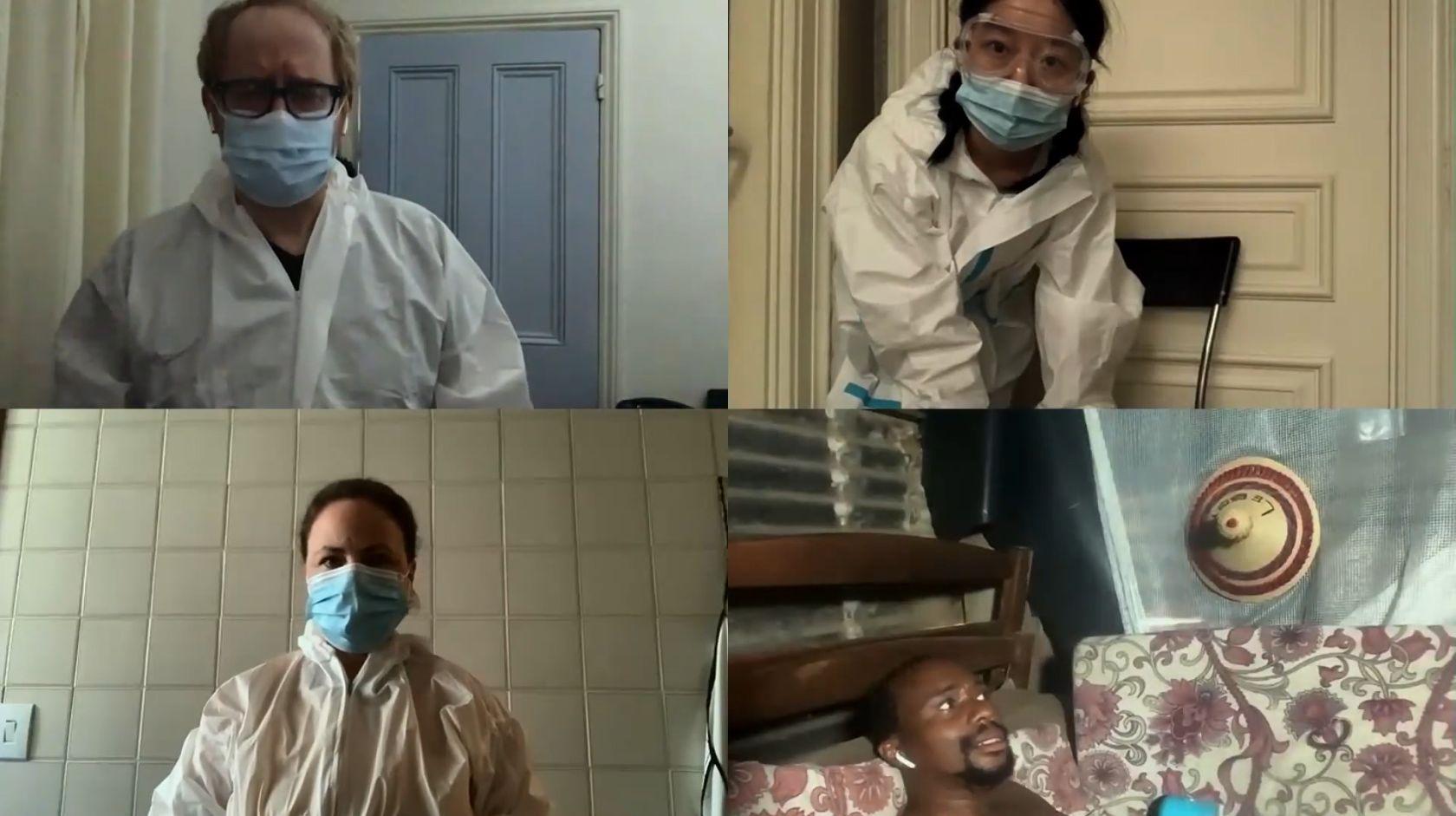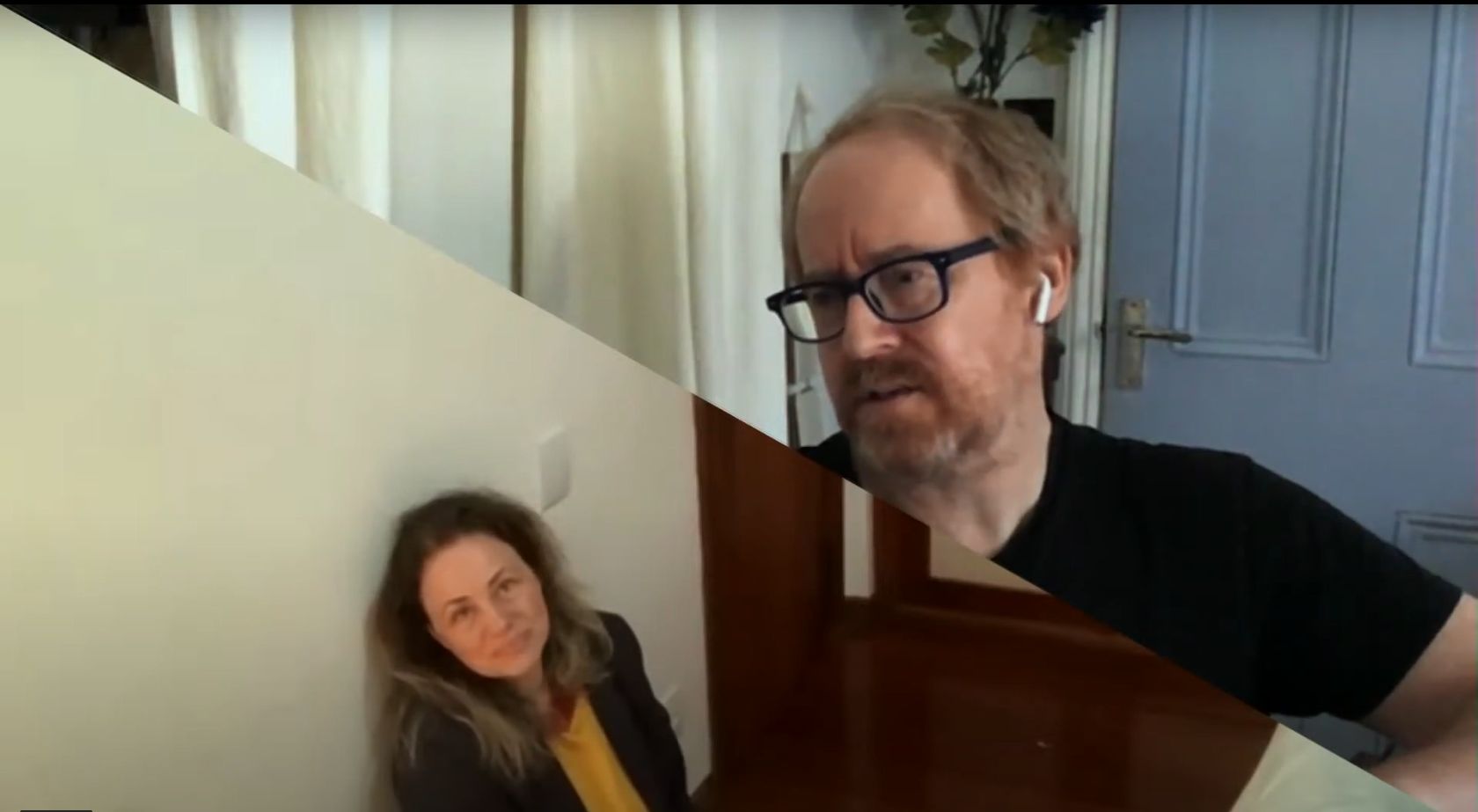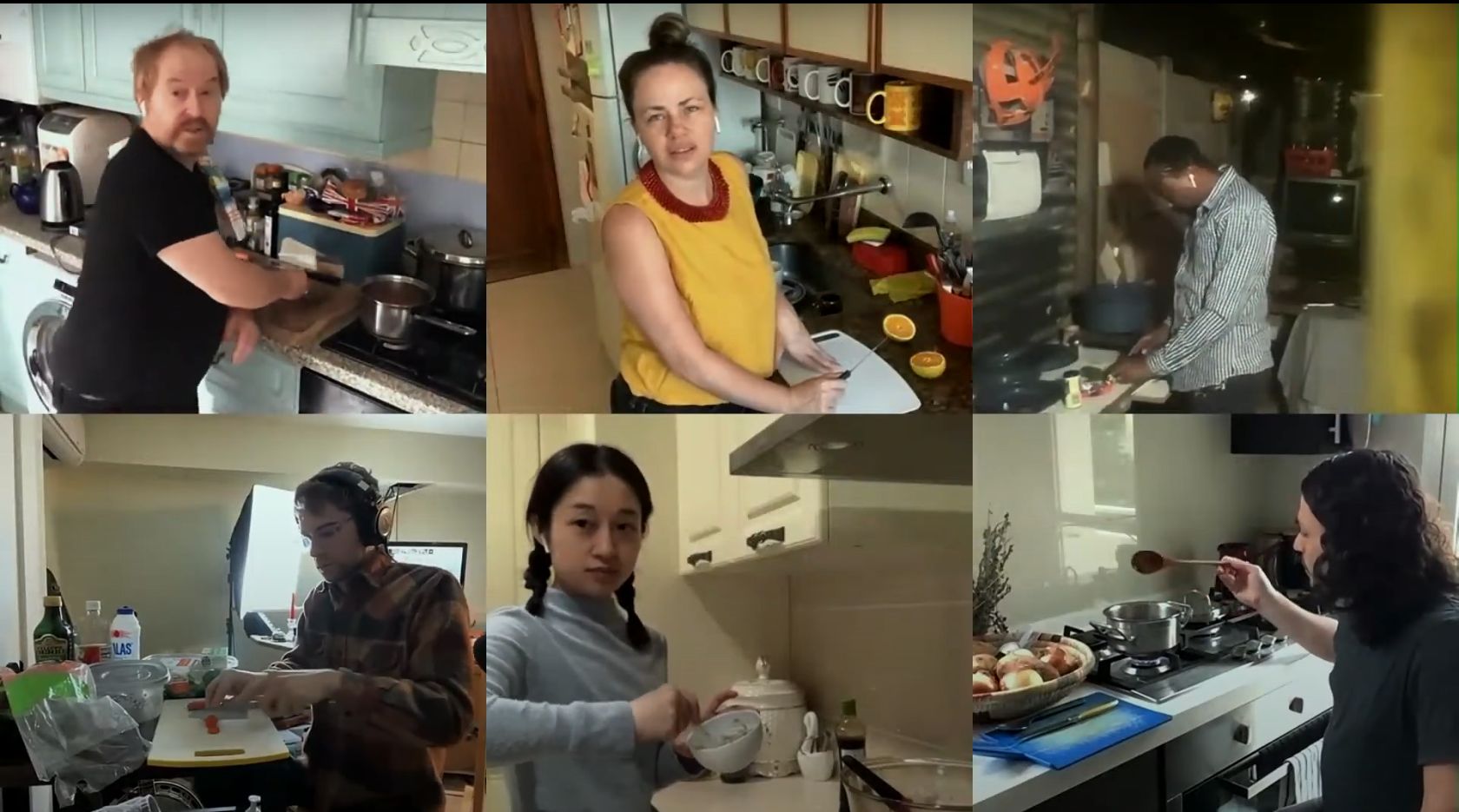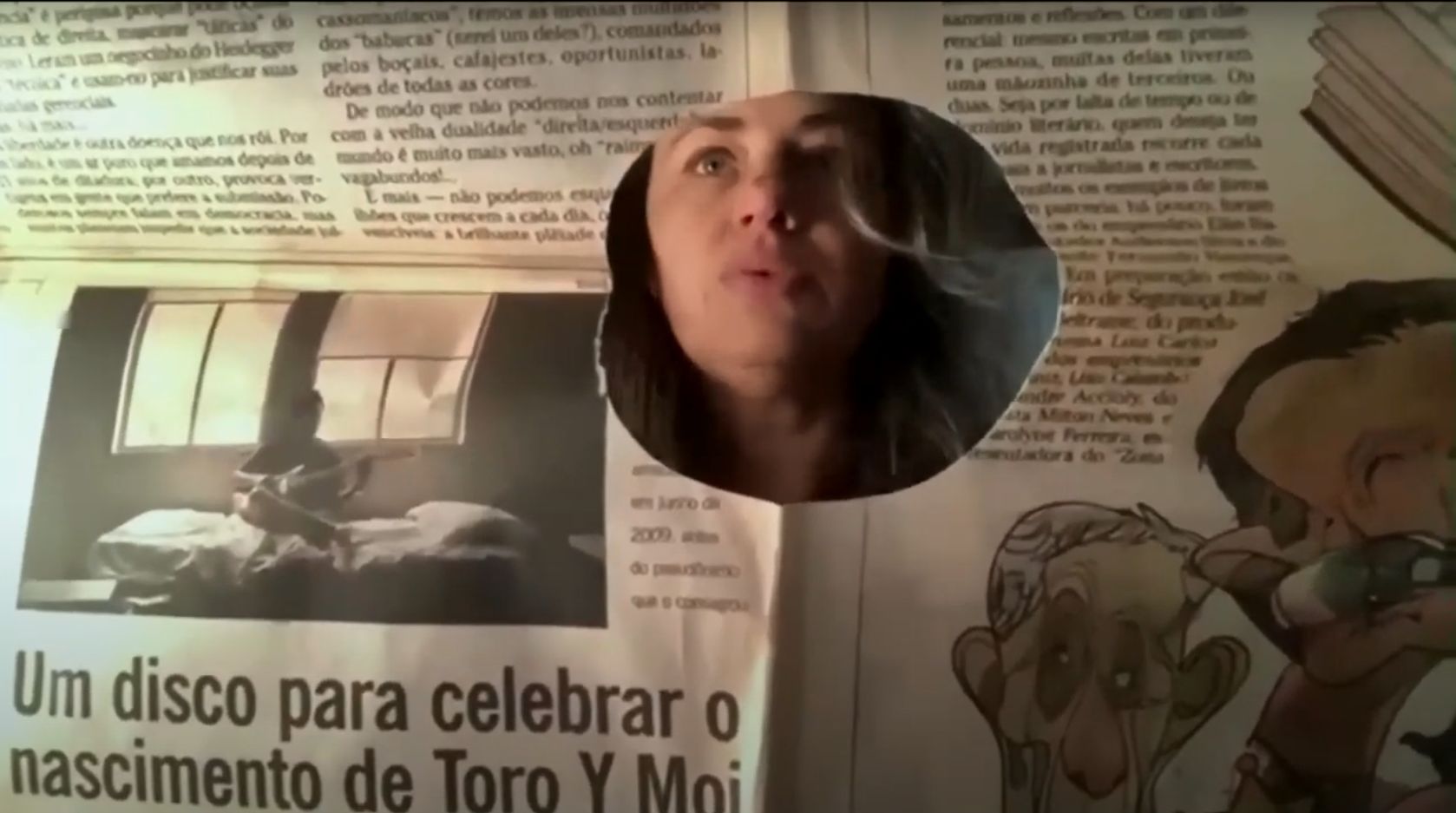An adaptation of Albert Camus’s existential classic for pandemic times
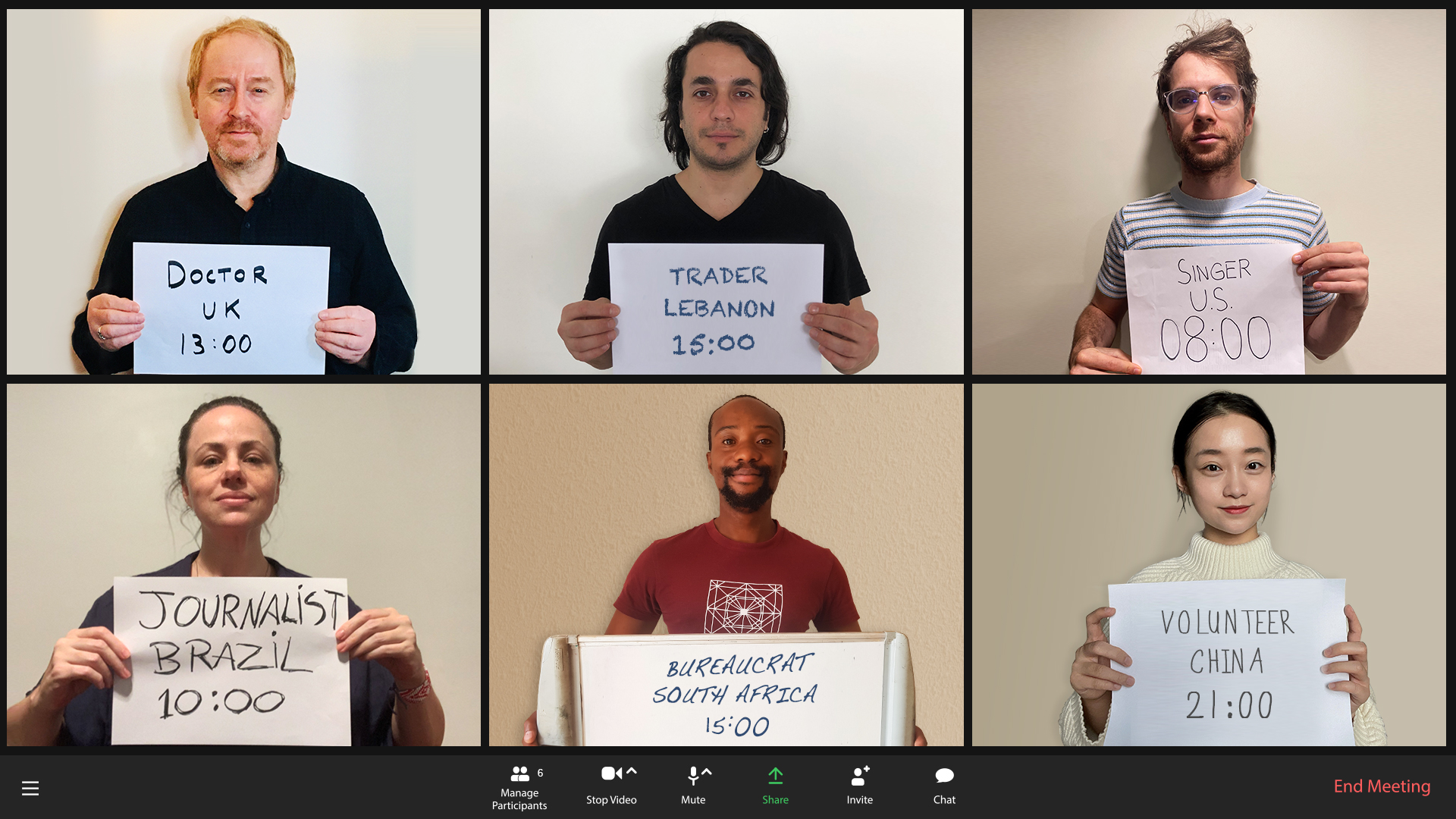
By Ivan Mercier
Ivan Mercier takes a look at one of two adaptations of The Plague being presented at this year’s HKAF—a ground-breaking online version performed simultaneously by a cast in six countries around the world.
A new production of British playwright Neil Bartlett’s adaptation of Albert Camus’s existential classic The Plague brings the story right up to date, with a particularly eery resonance for these times of pandemic. I had an opportunity to take a look at the first rehearsals this week, which was an unusual experience, not least because neither director nor performers were present.
Award-winning Beijing-based director Wang Chong brings together six actors performing from six countries around the world for an online production that mirrors the experience of millions of people over the past year. Bartlett’s stage adaptation is filtered through a virtual prism, where the actors interact through a barrage of ingenious split-screen techniques and editing. Everything is directed through a control room in Hong Kong, with director, cast and crew joining up remotely, using now-familiar technologies.
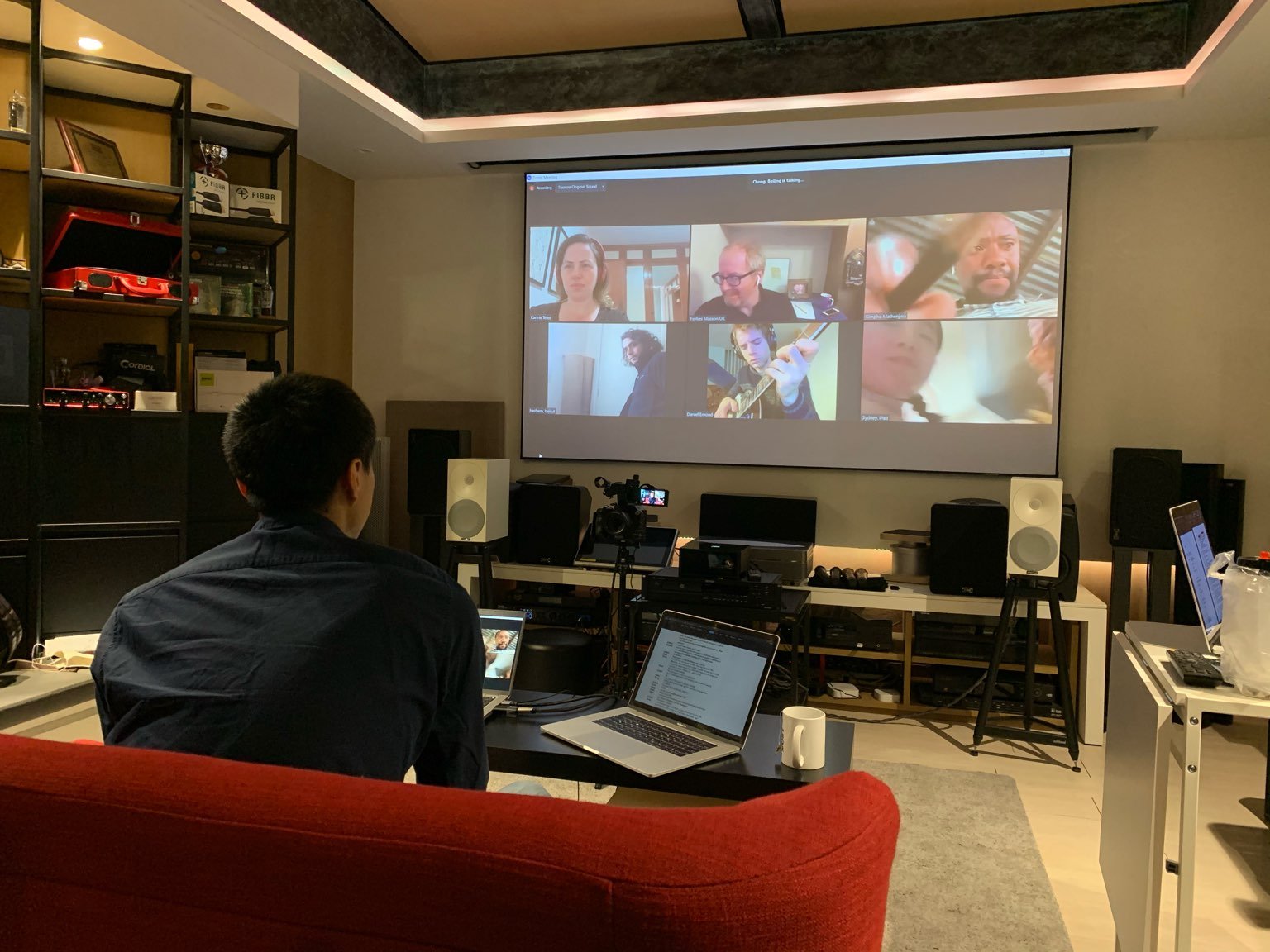
The story unfolds in the Algerian city of Oran, where a mysterious contagion has begun killing rats and then humans. A physician, Doctor Bernard Rieux (Forbes Masson, London) assumes the seemingly futile task of holding back the tide of the plague that is sweeping the city. A journalist (Karine Teles, Rio de Janeiro) tries to convince him to bend the rules and provide her with papers so she can leave the city and join her lover; a petty trader (Hashem Adnan, Beirut) takes advantage of the reigning confusion to peddle goods on the underground market. A government clerk (Simpho Mathenjwa, Johannesburg) chronicles the outbreak but himself gets infected, while a recent arrival in the city (Sydney Zhao, Wuhan) volunteers to help with treating patients despite the high risk of dying. New York musician and composer Henri Emond provides a haunting original soundtrack in real time.
The Plague asks profound questions about the reactions of ordinary people in extraordinary circumstances, about their motivations and anxieties in the face of a life-altering phenomenon. Camus’s novel was originally inspired by his experience of living in France under the Nazi occupation; this new production draws on a more mundane reality––the various restraints and lockdowns people around the world have undergone, as COVID-19 has forced us to distance from one another and has made travel, socialising and so much of what we take for granted impossible.
The small screen is the stage for Wang’s cast and they make inventive use of the pliable canvas that is the small windows of online platforms; the action veers from expansive to claustrophobic, providing an intimacy that seems paradoxical in this age of social distancing.
The format is not entirely unprecedented––Mike Figgis’s experimental film Timecode (2000) made similar use of split–screen––but prevailing contemporary events give it an extra frisson. Wang invites us to observe the goings-on on screen that unfold in a fashion that is both familiar to our own recent experiences of dislocated, diffracted and disembodied existence and yet strange and unsettlingly different.

This ambiguity perfectly embodies the uncanniness of everyday life that few in the world have been spared over the past year. From inauspicious circumstances comes a timely piece of theatre, in which the DNA of contemporary history is deeply encoded. While it remains to be seen just how influential the new format thrown up might be, one can imagine numerous scenarios and works to which it might be perfectly adaptable, and it has a certain advantage in not being tied down by geographical constraints.
The chief virtue of Wang’s The Plague is that it is more than a simple online production; its very fabric is the virtual medium that is now home, and, indeed place of work, for so many of us.
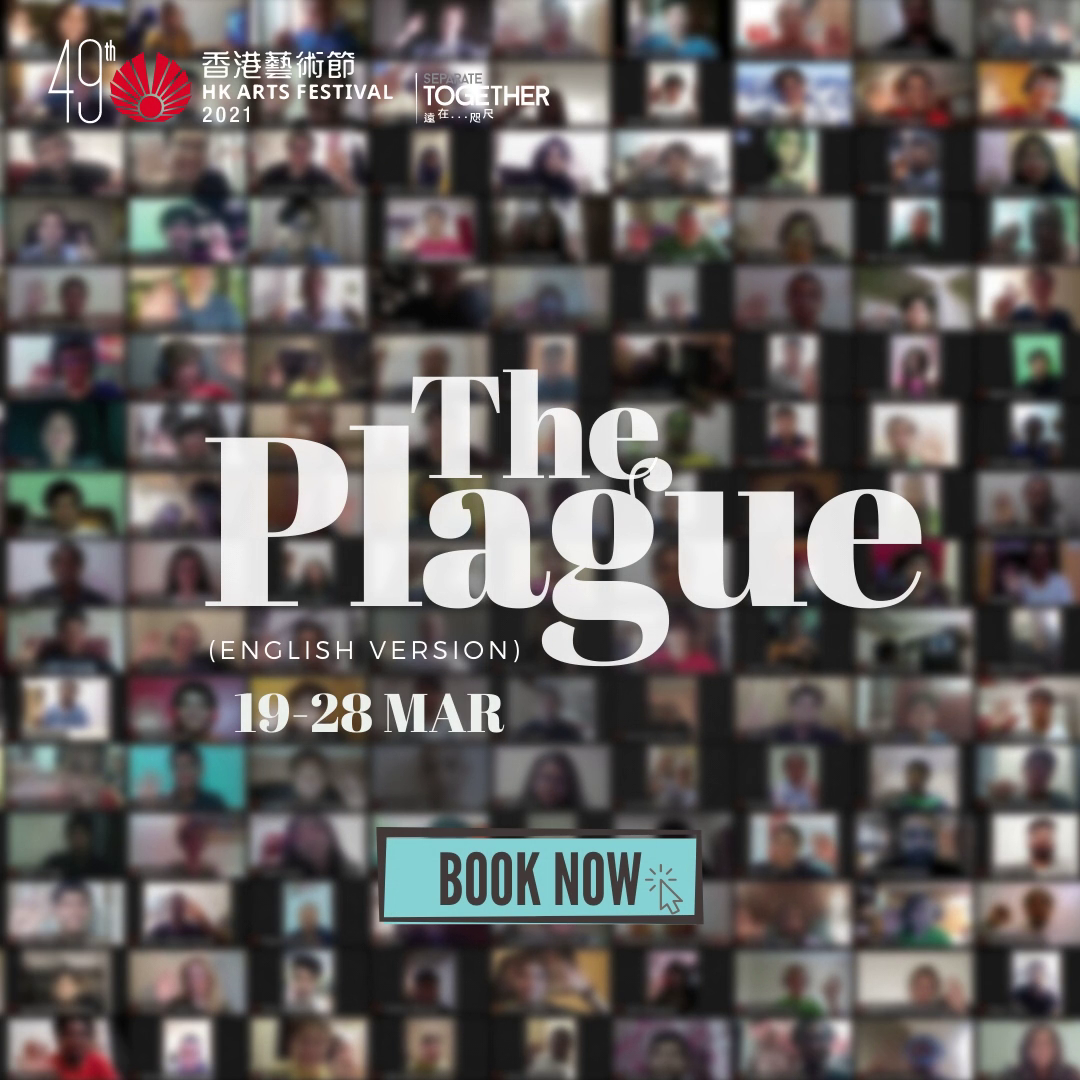
Theatre
The Plague (English version)
As a deadly plague strikes, a large part of the population in a frenetic city is wiped out. After the apocalypse, six survivors testify before a tribunal, each offering a different account of the life-and-death crisis. In this chillingly ruminative production, directed by avant-garde Chinese director Wang Chong, six actors, from six countries around the world, will perform live online. The Plague compels us to take a long, hard look at the outside world and our inner selves during a critical time rife with fear and uncertainties.
Programme details